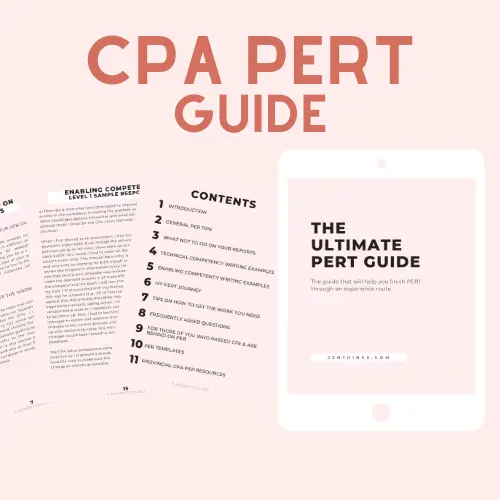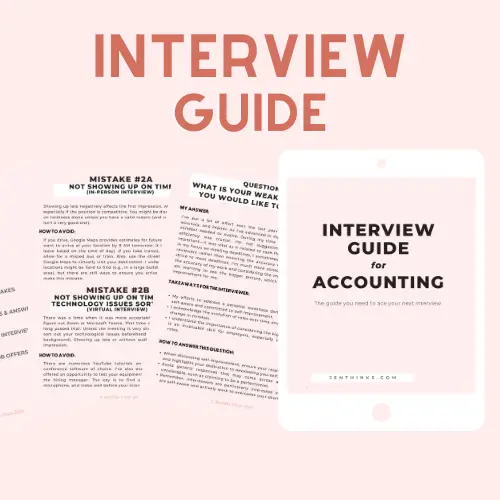In an effort to stay up to date with the CPA profession and the industry, I always seek out publications to read. Last time, I shared what I learned from the latest issue of CPABC In Focus magazine published by CPABC. This time, I want to share what I learned from the latest Sep/Oct 2020 issue of Pivot Magazine by CPA Canada.
Like CPABC In Focus, the Pivot magazine is free and electronic versions are easily accessible online. Each issue is packed with valuable insights from industry experts and CPAs. The content often helps me apply or visualize what I learned in CPA PEP modules in real-life situations which in turn helps with knowledge retention.
RELATED POST – Staying Up-To-Date With CPABC’s InFocus Magazine
If you are a CPA candidate who struggles with cases or has trouble conceptualizing textbook knowledge, give the magazine a read. You might be surprised how much you will take away from the free publication! To help you get started, I have included the questions/comments I came up with when I read each article. These critical thinking skills are exactly what CPA candidates are being tested on as well.
RELATED POST – 5 Things I Wish I Knew Before I Started CPA Core 1
What I Learned From The Sep/Oct 2020 Issue of Pivot Magazine
The letter by Joy Thomas, Former CEO of CPA Canada
- Trougakos, an associate professor at the University of Toronto’s Rotman School of Management, has found that people work more creatively and more efficiently over shorter periods of time when they work remotely.
- Do CPAs have the knowledge and tools to work with managers that are making business decision that will take advantage of this increased productivity and creativity?
“Casino cleanup”
- To combat the money laundering issue in BC Casinos, Greg Moore reassured Pivot readers that actions have been taken. An example was an independent analysis done to make sure casinos are following protocols such as clearly labelling cheques when they are not gaming winnings (i.e., original fund gamblers brought from an unknown origin). Read their anti-money laundering reports here.
- A reminder of how important it is to uphold our professional values. Specifically, the importance of integrity.
“The Next Generation”
- Paul Martin, former Prime Minister and Finance Minister, talked about the work he has done to help ensure Indigenous youth get the same quality of education as everyone else. This included working with Indigenous teachers and a publishing house to create education materials designed with their culture in mind.
- An example of how we can make a difference with our skills and experience regardless of our degrees (Martin held a law degree and an art history degree) and careers (politician).
“Money for Nothing”
- Universal basic income (UBI) has been mentioned more than usual this year due to the pandemic. Francis Fong’s, CPA Canada’s Chief Economist, article discusses the basic principle of UBI and the challenges of implementing it in Canada.
- Are CPAs equipped with the skillsets to help policymakers with the decision making process relating to UBI? A policy that can change Canadian lives forever.
RELATED POST – A Round-Up of Articles That Will Help You Become A Stronger CPA Candidate
“Teachable Moment”
- You are probably more or less familiar with the CPA Competency Map if you are or were a CPA candidate. Wiecek’s article serves to highlight the importance of developing a Competency Map that will provide future CPAs with the tools and knowledge they need to succeed in the future workforce.
- If you are a CPA candidate but haven’t utilized the Competency Map to guide your study, you should start. As you learn from this article, the map is developed with the goal of ensuring aspiring CPAs are future-ready.
“Strength in numbers”
- On the topic of financial literacy of First Nation, Métis and Inuit people, Keith Martell says “unless they have the opportunity to exercise financial literacy, it’s not going to become a way of life.” The article talks about the work that has been done with the common goal of equipping the Indigenous people to take control of their own financial future.
- Did you know CPA Canada offers free financial literacy resources to the general public? This is because the profession is just as aware of the importance of financial literacy as Keith Martell.
RELATED POST – What I Learned At The CPA Financial Literacy Virtual World Tour
“Signed, Sealed, Delivered”
- An interesting read on the increasingly essential food delivery companies like UberEats and workers’ rights and unionization. The author presents a balanced representation of arguments both for and against unionization of the gig economy.
- Gig economy is becoming more and more common and CPAs are always at the forefront to prepare the society for change. This is why CPA candidates are trained to be both adaptable and knowledgeable.
“No Fixed Address”
- Working 100% remotely was only a distant dream for many until the pandemic shifted the working normal overnight. LiveCA, a virtual accounting firm since its beginning 7 years ago, shared how their years of remote experience served as their competitive advantage more than ever this year. Davis, the co-founder of LiveCA, recalled the moment he realized there was a need for accountants who are savvy in both technology and accounting.
- One of the reasons for LiveCA’s success is because they were ahead of the game. The founders saw an opportunity and created an accounting firm with a competitive advantage. This ties in well with the content from PEP Performance Management module.
~ More CPA Posts ~
CPA PEP Core 1 – How to Study for the Module and the Exam
CPA PERT – Ultimate Guide on How to Get Your First Experience Report via EVR Approved
CPA PERT – Enabling Competencies Examples
Densmore for CPA PEP – Are The PEP Essentials Packages Worth It?
CPA PEP Module – Regular Module or Extended Module?
“Safe Spaces”
- If you are wondering what the future of the physical office might look like, Tanner’s article discusses some possibilities. However, she cited a warning from CPA Canada’s Chief Economist about the fact that it is still too soon to predict accurately.
- An old-school image of an accounting firm might be a picture of mountains of paper on top of desks and floor. However, this is no more especially with the pandemic change. That means, accounting firms will be at the forefront of adapting to the new normal for office space.
“Swab Story”
- PGx, a billion-dollar business, offers what is called “personalized medication management service.” By mailing in a cheek swab full of your genetic information to the lab, it will return a color-coded summary with predicted responses to medications. As advanced as this sounds, there are certain privacy concerns in Canada including insurance companies being privy to information on predisposed diseases.
- An article from a previous issue of the Pivot Magazine talked about CPA’s future role in data analytics. Even though CPAs do not need to become data scientists, they definitely need to be able to analyze data. CPAs who have the data skillset might be able to offer value by combining financial data and medical data in this emerging medical trend.
Closing Comment About The Pivot Magazine
I have only listed the things I learned from one single bi-monthly issue of the Pivot magazine. The Pivot Magazine offers a lot of useful and relevant content that both CPA candidates and CPAs can benefit from. Next time, I suggest you take a brief break between scrolling through Instagram stories (I am guilty as charged) and Netflix to give the free magazine a read.
Who knows? You might just find your true passion that will allow you to utilize your designation in full!


